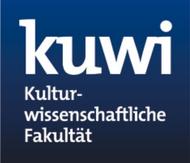Veranstaltungen und News
Juliane Rebentisch: The Reality of Ghosts: Haunted Landscapes in the Anthropocene (auf Englisch)
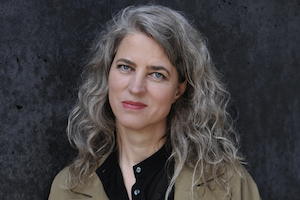
09. Mai
18:00-19:00 (s.t.)
Logensaal
Juliane Rebentisch: The Reality of Ghosts: Haunted Landscapes in the Anthropocene
Ein Impulsvortrag von Juliane Rebentisch (Hamburg/Princeton) im Rahmen der Tagung „Realisms of Relations. Ecologies of Art in the Aftermath of Modernity“ der Juniorprofessur für Theorie der Künste und Medien und in Kooperation mit der IFES Gesprächsreihe "Mensch und Planet".
Eine Art und Weise, wie Menschen heute ihre Beziehungen zu nicht-menschlichen Wesen realisieren, ist die Erkenntnis ihrer Abwesenheit. Das unheimliche Gefühl, dass „nichts da ist, wo etwas sein sollte“ (Mark Fisher), korrespondiert mit der Wahrnehmung von Landschaften, die von überlagernden Geschichten der Gewalt heimgesucht werden. Eine Sensibilität für die Gespenster des Anthropozäns - für die Zeichen vergangener Lebensformen - entspricht einem Impuls, nicht zu vergessen und sich dem Verlust im Zeitalter des Massensterbens zu stellen. Der Vortrag untersucht die realistische Wendung des Gespenstermotivs im ökokritischen Diskurs und diskutiert dessen Konsequenzen für eine Politik der Trauer.
Juliane Rebentisch ist Professorin für Philosophie an der Hochschule für bildende Künste Hamburg. Von 2014 bis 2024 war sie Mitglied des Forschungsrats am Frankfurter Institut für Sozialforschung, dem sie nun als Permanent Fellow verbunden ist. Seit 2019 ist sie Regular Visiting Professor am German Department der Princeton University. Von 2015 bis 2018 hatte sie das Amt der Präsidentin der Deutschen Gesellschaft für Ästhetik inne. 2017 wurde sie mit dem Lessing-Preis der Freien und Hansestadt Hamburg ausgezeichnet. Zu ihren Publikationen gehören: Ästhetik der Installation (Suhrkamp 2003); Die Kunst der Freiheit. Zur Dialektik demokratischer Existenz (Suhrkamp 2012); Theorien der Gegenwartskunst zur Einführung (Junius 2013); Der Streit um Pluralität. Auseinandersetzungen mit Hannah Arendt (Suhrkamp 2022).
Brandenburg nach der Bundestagswahl: Analyse und Ausblick
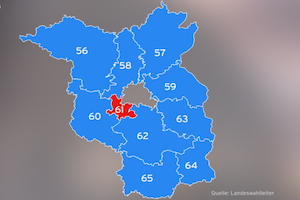
29. April
18:00 - 20:00 (c.t.)
Senatssaal, HG 109
Brandenburg nach der Bundestagswahl: Analyse und Ausblick
Podiumsdiskussion mit:
Gideon Botsch (Universität Potsdam)
Tom Leistner (Projektleiter „Wir sind der Osten“)
Theresa Gessler (EUV)
Sascha Münnich (EUV)
Moderation: Susann Worschech (EUV)
In der Bundestagswahl vom 23. Februar 2025 hat sich mit der AfD als stärkste politische Kraft in Brandenburg eine Partei durchgesetzt, die fremdfeindliche oder gar rassistische, anti-wissenschaftliche und anti-demokratische Positionen vertritt. Über die Folgen auf Bundesebene hinaus stellen sich in diesem Zusammenhang Fragen, die Brandenburg als Arbeits- und Lernort betreffen: was bedeutet diese Wahl für unsere Stadt und unsere Universität? Mit Blick auf die möglichen Ursachen für dieses Ergebnis, vor allem aber auf die künftigen Perspektiven für Land, Stadt und Universität, lädt das IFES zum Gespräch ein.
Reimund Schwarze: Plädoyer für eine ganzheitliche Klimapolitik und eine Neuorganisation der Kompetenzen in der neuen Bundesregierung
 "Der vielleicht größte Trugschluss der aktuellen Klimapolitik ist die irreführende Annahme, dass sich die Klimakrise allein durch technische Lösungen und ohne Einbeziehung der Natur bewältigen lässt." (Reimund Schwarze)
"Der vielleicht größte Trugschluss der aktuellen Klimapolitik ist die irreführende Annahme, dass sich die Klimakrise allein durch technische Lösungen und ohne Einbeziehung der Natur bewältigen lässt." (Reimund Schwarze)
In seinem "Plädoyer für eine ganzheitliche Klimapolitik und eine Neuorganisation der Kompetenzen in der neuen Bundesregierung" macht sich Prof. Dr. Reimund Schwarze für einen Klimaschutz stark, der neben technischen vor allem auch auf naturbasierte Lösungen und deren unmittelbare Potenziale setzt sowie die Prinzipien einer gerechten Energiewende in der internationalen, nationalen und kommunalen Klimapolitik ernst nimmt. Prof. Dr. Schwarze schließt sein Plädoyer mit konkreten Reformvorschlägen für die nationale und internationale Politik.
Die politischen Systeme im östlichen Europa: Institutionen, Akteure und Prozesse
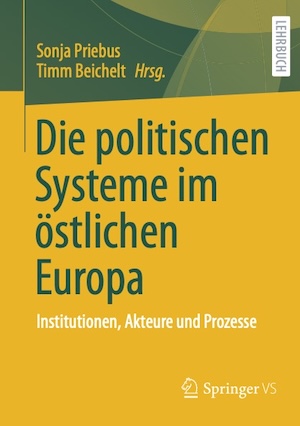
Das Buch bietet eine vergleichende Darstellung der politischen Systeme der Staaten des östlichen Europa, d.h. aller Staaten in Mittel-, Ost- und Südosteuropa. Die insgesamt 22 Länderkapitel beschreiben und analysieren zentrale Institutionen wie Parlament, Regierung, Staatspräsident und das Wahlsystem. Um der starken Dynamik von Transformation und Post-Transformation Rechnung zu tragen, wird auch die soziale und historische Einbettung der Institutionen beleuchtet.
Das Buch ist unter Herausgabe von unseren Institutsmitgliedern Sonja Priebus und Timm Beichelt bei Springer VS erschienen und richtet sich an Studierende der Politikwissenschaft sowie an alle Personen, die sich für die dynamischen politischen Entwicklungen im Osten Europas interessieren.
Jahresbericht 2024
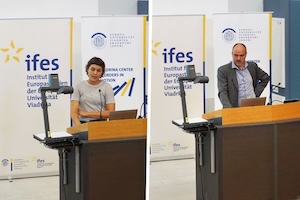
Wiederauflage der Working Paper Series, Beginn der Gesprächsreihe "Mensch & Planet" u.a. mit Vorträgen zur COP29 und Reflexionen über den Wert von Flüssen im Kontext des russischen Angriffskriegs in der Ukraine sowie weitere öffentliche Veranstaltungen und Gegenwartsanalyse, darunter Veranstaltungen anlässlich des 40. Todestages Michel Foucaults sowie zu den anhaltenden Grenzkontrollen an der deutsch-polnischen Grenze und deren Auswirkungen auf Frankfurt (Oder) und zu den Präsidentschaftswahlen in den USA - das waren Themen der Aktivitäten am IFES im vergangenen Jahr.
Randall Halle: European Values in the EU´s Developmental, Energy and Climate Policies
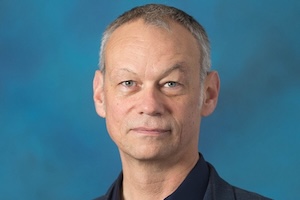
06. Januar
16:00-18:00 Uhr (c.t.)
Online, Zoom
Randall Halle: European Values in the EU’s Developmental, Energy and Climate
Policies
In cooperation with the Research and Education Network on Contestations to EU Foreign Policy ValEUs, the event takes place as part of the IFES Talk Series Human & Planet and the ValEUs Lecture Series. It combines interdisciplinary approaches to critically evaluate EU foreign policy with a special focus on its foundational set of principles, its contestations and emerging conflicts. In his lecture, Randall Halle will discuss the values conveyed in recent environmental policies of the European Union.
Randall Halle is an associated IFES member and Klaus W. Jonas Professor of German Film and Cultural Studies as well as director of the European Studies Center at the University of Pittsburgh.
Tetiana Gardashuk: Reflections on the Past and Future of the Kakhovka Hydropower Plant Area (KHPP)
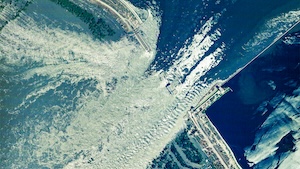
17. Dezember
16:00-18:00 Uhr (c.t.)
AM 203, Auditorium Maximum
Tetiana Gardashuk: Reflections on the Past and Future of the Kakhovka Hydropower Plant Area (KHPP)
In this lecture, the Ukrainian scholar Tetiana Gardashuk (National Academy of Sciences of Ukraine/ KIU) explores the multiple roles of rivers, the historical, economic and cultural context of hydropower development, and dam building with a special focus on the case of the Dnipro Hydropower Cascade, which is part of the Kakhovka Hydropower Plant (KHPP), that was destroyed on June 6, 2023, in one of the biggest russian war crimes in Ukraine. The possible scenarios for the future of the area will be outlined. The event is part of the Talk Series Human & Planet.
IFES Gegenwartsanalyse: Klimaschutz nach Baku (hybrid)
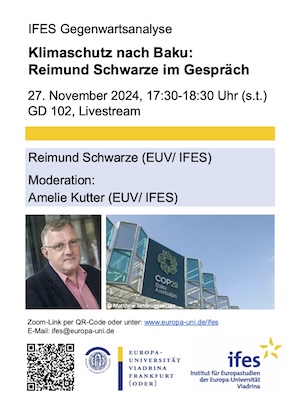
27. November
17:30-18:30 Uhr
GD 102, Gräfin-Dönhoff-Gebäude
Klimaschutz nach Baku: Reimund Schwarze im Gespräch
Moderation: Amelie Kutter
Die ersten Berichte von der COP29, der Weltklimakonferenz in Baku, erzählen von fensterlosen Tagungsräumen und ergebnisarmen Diskussionen. Die erneute Ausrichtung der Klimakonferenz in einem Land, das als Öldiktatur bezeichnet wird, der Ausgang der US-Präsidentschaftswahlen mit einem Kandidaten, der sich dezidiert für fossile Energien stark macht, und die Abwesenheit relevanter politischer Akteure werfen die Frage auf, welche Perspektiven die Konferenz in Baku für den Klimaschutz bieten kann.
Welche konkreten Maßnahmen wurden beschlossen, um den Übergang von fossilen Brennstoffen zu regenerativen, klimaneutralen Technologien voranzutreiben? Wie sind die Klimaschutzprogramme, Emissionsreduktionen und Finanzierungsfragen einzuschätzen? Welche realistischen Aussichten ergeben sich aus den Ergebnissen der Klimakonferenz?
Einblicke aus erster Hand liefert der Umweltökonom und Viadrina-Experte Reimund Schwarze, der als Beobachter der COP29 vor Ort war. In seinem Vortrag wird er von den Verhandlungen berichten, die Konferenzergebnisse analysieren und ihre möglichen Auswirkungen auf die globale Klimapolitik einordnen. Moderiert wird die Gegenwartsanalyse von Amelie Kutter, deren Forschungsschwerpunkt auf der lokalen Umsetzung von Nachhaltigkeitstransformationen im Mehrebenensystem liegt.
Die Veranstaltung ist der Auftakt der Gesprächsreihe Mensch & Planet, mit der am IFES eine Plattform für umweltbezogene Themen wie Klimakrise, Anthropozän und Nachhaltigkeit geschaffen wird. Weitere Aktivitäten im Wintersemester 2024/25 werden in Kürze bekannt gegeben.
Eine Aufzeichnung der Veranstaltung ist auf dem Viadrina-Medienportal verfügbar und eine Besprechung im Viadrina-Logbuch erschienen.
Internes Kolloquium
Das IFES hält am 28. November sein erstes internes Kolloquium in diesem Semester ab. Bei Interesse an einer Teilnahme bitte eine E-Mail senden: ifes@europa-uni.de.
Hier geht es zum Programm des aktuellen sowie des letzten Kolloqiums vom März 2024.
Neuauflage der IFES Working Paper Series
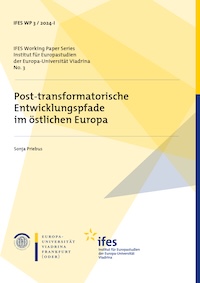
Sonja Priebus: Post-transformatorische Entwicklungspfade im östlichen Europa
Kurzzusammenfassung: Über drei Jahrzehnte nach den 1989/90 erfolgten politischen und wirtschaftlichen Umbrüchen in Mittel- und Osteuropa wird die Region häufig noch immer als eine homogene Gruppe von Staaten wahrgenommen, deren Mitglieder ähnliche politische Entwicklungen durchlaufen und mit ähnlichen, teils mit dem sozialistischen Erbe in Verbindung stehenden Herausforderungen zu kämpfen hätten. Der vorliegende Beitrag untersucht und typologisiert die post-transformatorischen Entwicklungspfade der europäischen Staaten des östlichen Europa seit Abschluss ihrer Transformationen ab etwa 1991/1992 bis heute. Die zentrale Frage ist, wie die Regimeentwicklung in den Staaten der Region verlief und welche Entwicklungsmuster erkennbar sind. Dabei wird das vorrangige Muster in der Regimeentwicklung eines Staates in der Phase der Post-Transformation als post-transformatorischer Entwicklungspfad (PTEP) bezeichnet. Induktiv werden fünf idealtypische PTEPs identifiziert: 1) eine pfadabhängige Autokratisierung; 2) Pfadwechsel in beide Richtungen (von Demokratie zur Autokratie und vice versa); 3) die Nicht-Konsolidierung der Demokratie; 4) eine pfadabhängige Demokratisierung und 5) Regimezyklen. Die PTEPs erfassen dabei nicht primär das Ergebnis (d.h. Regime-typus und Regimequalität zu einem bestimmten Zeitpunkt), sondern den Prozess der Regime-entwicklung. Damit wird dem Umstand Rechnung getragen, dass die Entwicklung in den Staaten zumeist sehr dynamisch war und noch immer ist und diese Dynamik durch eine bloße Zuordnung zu Regimetypen, welche nur Momentaufnahmen darstellen, nicht abgebildet wird. Der Beitrag zeigt, dass die Staaten der Region teils sehr unterschiedliche Entwicklungen durchlaufen haben und wir daher keinesfalls von einer homogenen Gruppe sprechen können.
Schlagworte: Post-Transformation, Regimedynamik, Entwicklungspfade, Demokratie, Autokratie
Die IFES Working Papers Series dient dazu, erste Ergebnisse laufender Forschungsprojekte vor der Veröffentlichung zu verbreiten, um den Gedankenaustausch und die wissenschaftliche Debatte zu fördern. Die Papiere werden von Experten begutachtet und im Rahmen des internen Kolloquiums des IFES diskutiert.
Gegenwartsanalyse zur Mittagszeit: Why did Trump win (at such scale)?
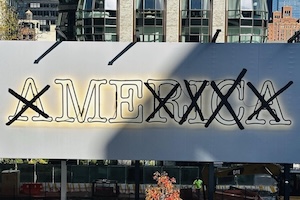
21. November 2024
13:00-14:00 Uhr (s.t.)
online, Zoom
Gegenwartsanalyse zur Mittagszeit: Why did Trump win (at such scale)?
Im Rahmen der Reihe Gegenwartsanalysen zur Mittagszeit lädt das Viadrina Institut für Europa-Studien (IFES) zur folgenden Veranstaltung ein:
Sascha Münnich (EUV) im Gespräch mit Randall Halle (Pittsburgh)
Das Ergebnis der Präsidentschaftswahlen in den USA war in gewisser Weise zu erwarten und doch kam es für viele Menschen wie ein Schock: Wie konnte sich Donald Trump mit einem so deutlichen Vorsprung gegen Kamala Harris durchsetzen? Welche Faktoren erklären diesen Rückhalt in der Bevölkerung und vor allem, welche Versäumnisse oder Fehler der regierenden Demokratischen Partei und ihrer Wahlkampfstrategie könnten zu diesem Ausgang beigetragen haben?
Sascha Münnich und Randall Halle werden diese Fragen aus sozial- und kulturwissenschaftlicher Perspektive miteinander und mit dem Publikum diskutieren und anhand aktueller Umfragen und ihrer Erfahrungen vor Ort analysieren: Was können wir aus dieser Wahl lernen, auch für die Zukunft Europas?
Das Gespräch findet auf Englisch statt, Fragen können gerne auf Deutsch gestellt werden.
First Annual ValEUs Conference: The Contestation of European Values from Afar
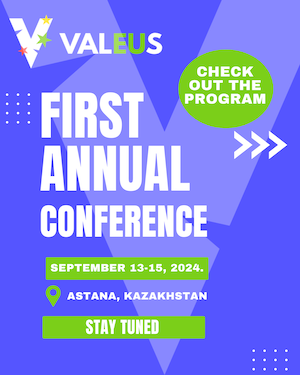
13-15 September 2024
First Annual ValEUs Conference: The Contestation of European Values from Afar
European values play a significant role in shaping the attachment of citizens and elites to the European Union (EU). They are central to the EU’s self-definition of where it stands. And they set the orientation of its foreign policy. Yet far from being universally accepted and promoted, the EU’s goals have increasingly been questioned. What is the actual role of the EU’s values? Are they too broad or too narrowly defined; are they at times unable to generate a unique civic identity for the European people? Do they provide the EU a unique voice on the global stage, or have they instead led the EU to marginalize itself? Is the EU able to properly fulfill its own mandates? Does the EU actually live up to the values it promotes?
If many of these contestations have been raised from within the EU, too little attention has been given to how they are perceived in non-European contexts. The goal of the first ValEUs Conference is an analysis of the ways individuals, groups, and elites in American, Asian, African, and Middle Eastern countries perceive these values and, in return, how these external contestations are understood by European elites. Are these values perceived as hints of Europe’s former colonialism? What role do they play in the resurgence of Russia’s Slavophile legacy and the country’s aggressive foreign policy? In light of what appears to be tomorrow’s world, can we expect European values to appeal beyond the EU’s formal structure or instead to increase the gap with non-European nations? Do these values have the potential to transcend cultural and civilizational differences, or are they instead a source of Europe’s marginalization?
The investigation of these questions (among others) will be integral to the First Annual ValEUs Conference. This conference will be held at Nazarbayev University, located in Astana, Kazakhstan, from September 13-15, 2024.
For more details, please check the conference program or visit https://valeus.eu/
Agnieszka Mrozik: Book Discussion
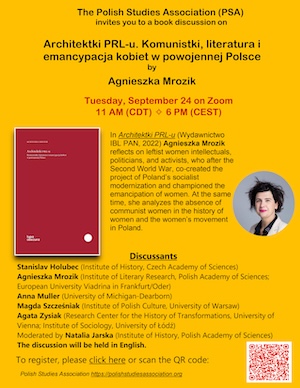
The Polish Studies Association (PSA) invites you to the following book discussion:
24 September 2024
6 pm (cest) on Zoom
Architektki PRL-u. Komunistki, literatura i emancypacja kobiet w powojennej Polsce (Female architects of communist Poland: Communist women, literature and women's emancipation in post-WWII Poland) by Agnieszka Mrozik
In Architektki PRL-u (Wydawnictwo IBL PAN, 2022) Agnieszka Mrozik reflects on leftist women intellectuals, politicians, and activists, who after the Second World War, co-created the project of Poland’s socialist modernization and championed the emancipation of women. At the same time, she analyzes the absence of communist women in the history of women and the women’s movement in Poland.
Discussants:
Stanislav Holubec (Institute of History, Czech Academy of Sciences)
Agnieszka Mrozik (Institute of Literary Research, Polish Academy of Sciences; European University Viadrina in Frankfurt/Oder)
Anna Muller (University of Michigan-Dearborn)
Magda Szcześniak (Institute of Polish Culture, University of Warsaw)
Agata Zysiak (Research Center for the History of Transformations, University of
Vienna; Institute of Sociology, University of Łódź)
Moderated by Natalia Jarska (Institute of History, Polish Academy of Sciences)
The discussion will be held in English. To register, please click here.
Grenzkontrollen zwischen Frankfurt (Oder) und Słubice - Eine wissenschaftliche Bestandsaufnahme
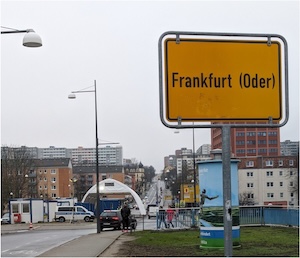
16. Juli 2024
13:00-14:00 Uhr (s.t.)
GD Hörsaal 04, Gräfin Dönhoff-Gebäude
Grenzkontrollen zwischen Frankfurt (Oder) und Słubice – Eine wissenschaftliche Bestandsaufnahme
In Kooperation mit dem Viadrina Center B/ORDERS IN MOTION widmet sich diese Gegenwartsanalyse zur Mittagszeit/ Research Factory den andauernden Kontrollen an der deutsch-polnischen Grenze und deren Auswirkungen in Frankfurt (Oder).
Mit Dr. Markus Engler (DeZiM) und Lea Sophie Christinck (EUV/ DeZiM),
Autor*innen des Gutachtens zum Stand der Grenzkontrollen an der deutsch-polnischen Grenze
Die vom Bundesinnenministerium temporär eingeführten stationären Kontrollen an den Grenzen zu Polen, Tschechien und der Schweiz betreffen auch den deutsch-polnischen Grenzübergang in Frankfurt (Oder) und Słubice. Seit Oktober 2023 führt die Bundespolizei die mehrfach verlängerte Maßnahme an der Stadtbrücke durch. Erklärtes Ziel der Kontrollen ist es, „irreguläre Migration“ einzudämmen und Schleuserkriminalität zu bekämpfen, indem unerlaubte Einreiseversuche direkt vor Betreten des Landes abgewendet werden. An den Maßnahmen wurde verschiedentliche Kritik geäußert. Während einige Stimmen eine zu geringe oder fehlgehende Wirkung bemängeln, kritisieren andere das Risiko von Diskriminierung und Racial Profiling bei der Durchführung.
Welche Folgen lassen sich inzwischen in der Praxis erkennen? Die Landtagsfraktion der Grünen hat ein Gutachten zur Einschätzung der Lage in Auftrag gegeben. Mit unseren Gästen und Verfasser*innen der Studie Marcus Engler und Lea Sophie Christinck vom Zentrum für Integrations- und Migrationsforschung Berlin (DeZIM) möchten wir den Stand der Dinge aus wissenschaftlicher Sicht diskutieren. Wie lassen sich die Maßnahmen im Hinblick auf ihre Effektivität einordnen? Wie verändern sich die Diskurse um Sicherheit und Migration? Welche Auswirkungen haben die lokalen Einschränkungen auf das Verständnis europäischer Werte und das Recht auf Freizügigkeit in Europa?
Ein Bericht über die Veranstaltung ist im Viadrina Logbuch erschienen und die Aufzeichnung ist auf dem Viadrina-Medienportal verfügbar.
Foucault's Reception 40 Years After
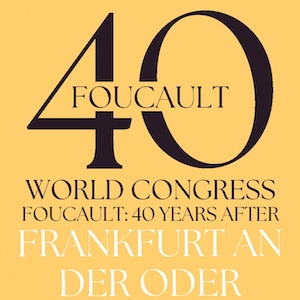
25 June 2024
4-8 pm (c.t.)
GD 102, Gräfin Dönhoff-Gebäude
Foucault's Reception 40 Years After
On the occasion of the 40th anniversary of Michel Foucault's death in 1984, the IFES organized two activities dealing with his work and its ongoing and productive reception. The event was part of the World Congress Foucault: 40 Years After. Here you can watch the video recording of part 1 and part 2 of the event.
Part 1: Foucault in Research and in Class: Teachers & Students Talk
4:15-5:45 pm
In the first part, teachers and researchers from the Faculty of Cultural Studies will exchange views with each other and with students on the influence of Foucault on their own work: How have we received his work? Which text has particularly influenced us? How have we used Foucault in teaching and research? What does his work mean for cultural studies? The discussion will take place as part of the seminar "Foucault's Futures: Reading and Reception Forty Years After".
Part 2: Foucault in Central and Eastern Europe: Readings and Reception
6:15-7:45 pm
This panel will examine the reception of Foucault's work in Central and Eastern Europe. The discussion will range from an assessment of Foucault's years in Warsaw to the particular readings, debates and uses that his work has provoked in Eastern European countries against the background of their specific political, cultural and intellectual histories: What are the characteristics of this reception? How was it conditioned by the specific historical and political context? How did Foucault's tools contribute to thinking about local social transformations? Which approaches and concepts have received broad attention so far and what future research perspectives have Foucault's writings opened up?
Our guests will give short statements on these questions and then discuss with each other, with members of the faculty and with students.
Magdalena Nowicka-Franczak (Łódź)
Michał Kozłowski (Warsaw)
Balázs Berkovits (Budapest)
Moderation: Estela Schindel (IFES)
Transformationen zur Nachhaltigkeit in Brandenburg
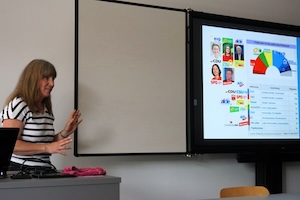
In ihrem auf zwei Jahre angelegten Lehrforschungsprojekt ‚Transformationen zur Nachhaltigkeit im Land Brandenburg‘ untersucht Amelie Kutter gemeinsam mit Studierenden für die Bereiche Wasser, Wald, Energie und Ernährung, wie Akteure in der Region Nachhaltigkeitspolitik umsetzen oder aber anfechten. Welche Vorstellungen und Praktiken entwickeln Expert*innen, Regierende und lokale Zukunftsmacher*innen, während sie neue Produktions- und Lebensweisen etablieren? Mithilfe von Dokumentenanalysen, Interviews und Exkursionen ins Feld werden Studierende in einer Serie von Forschungsseminaren dabei angeleitet, aktuelle Perspektiven auf nachhaltige Transformation zu erheben. Die Seminare sind nach der Philosophie des Challenge-Based Learning gestaltet und erkunden Herausforderungen und Lösungsszenarien in Zusammenarbeit mit lokalen Akteuren. Zuletzt wurde eine Brandenburger Agrargenossenschaft bei der Planung eines Solarmoor-Projekts begleitet, im kommenden Semester werden zusammen mit dem Kooperationszentrum Frankfurt-Słubice Szenarien für grenzüberschreitende klimaschonende Mobilität und Ufergestaltung entwickelt.
Am 10.10. sprach Amelie Kutter im Rahmen des Pluriversums auf Burg Storkow mit weiteren Zukunftsmacher*innen über das Projekt.
Agnieszka Mrozik: Remembering transitions across East Central Europe
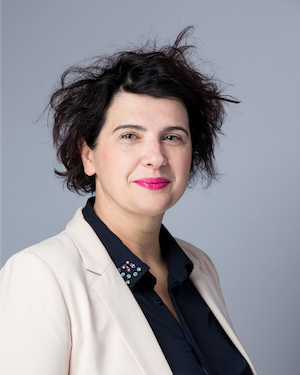
19.06.2024
14:30-16:00 (s.t.)
GD 07
Remembering transitions across East Central Europe: Preliminary findings from the field research in Poland and Germany
Presentation by Agnieszka Mrozik (MES) as part of the cultural studies colloquium.
The talk aims to present, on the one hand, the collaborative research project “Reconstituting publics through remembering transitions: Facilitating Critical Engagement with the 1980–90s on Local and Transnational Scales” – its objectives and the methodology adopted, and on the other hand to share preliminary findings from the fieldwork in Poland (Gdańsk and Łódź) and Germany (Berlin and Eisenhüttenstadt). The project investigates how dialogic memory practices can be facilitated and developed around memories of the 1980-90s political, socioeconomic, and cultural transformations in (post)socialist Europe. By “dialogic remembering,” the research team refers to the processes that create a space for sharing varied memories – voicing difference and dissent, relating to stories of others, and potentially creating new narratives that interlink divergent visions of the past. In my talk, I will not only discuss what memories were shared by the participants of the workshops we organized in four locations in Poland and Germany, as well as the participants of the discussions after the film Crystal Swan (2018), which we screened at the museums we collaborated with, but I will also try to answer the question of whether and how the concept of “dialogic remembering” works in practice.
Agnieszka Mrozik is an Associate Professor of Literary Studies at the Institute of Literary Research of the Polish Academy of Sciences and a guest professor at the European University Viadrina in Frankfurt (Oder) in the summer semester of 2023/24. She is the author of Architektki PRL-u: Komunistki, literatura i emancypacja kobiet w powojennej Polsce [Women architects of the Polish People’s Republic: Communist women, literature, and women’s emancipation in postwar Poland] (Wydawnictwo IBL PAN, 2022) and Akuszerki transformacji: Kobiety, literatura i władza w Polsce po 1989 roku [Midwives of the transformation: Women, literature, and power in post-1989 Poland] (Wydawnictwo IBL PAN, 2012). She has co-authored and co-edited several collective volumes, including Reassessing Communism: Concepts, Culture, and Society in Poland, 1944–1989 (CEU Press, 2021), Gender, Generations, and Communism in Central and Eastern Europe and Beyond (Routledge, 2020), and Historical Memory of Central and East European Communism (Routledge, 2018). Together with Dr. Ksenia Robbe (University of Groningen, PI), Dr. Andrei Zavadski (TU Dortmund) and Nora Korte (“Transition Dialogue” network, Berlin) she is working on the research project “Reconstituting Publics through Remembering Transitions: Facilitating Critical Engagement with the 1980–90s on Local and Transnational Scales” (2021–2024), awarded by the Network of European Institutes for Advanced Study (NetIAS) as part of the Constructive Advanced Thinking (CAT) Programme.
Witold Jacorzinsky: Migration from Wittgenstein’s perspective
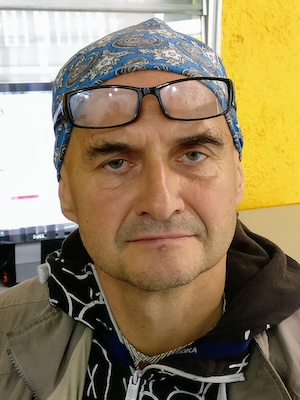
11.06.2024
18:00-20:00 (c.t.)
HG 201b
Aspect blindness: The problem of migration from Wittgenstein's perspective
Presentation by Witold Jacorzynski as part of the cultural studies colloquium.
In his presentation Witold Jacorzinsky will examine the problem of the immigrant as an Other. The otherness will be considered in its four different senses: the other as no-I, the other as a stranger, the other as an enemy and the other as a fellowman or a neighbour. As a case study Witold Jacorzinsky will analyse the migrants´ situation on the Polish-Belorussian and Mexican-Guatemalan borders. Those two cases will be compared through the use of wittgensteinian concepts such as seeing- as, aspect blindness and family resemblances.
Witold Jacorzynski studied philosophy and anthropology at the University of Warsaw, Poland, and holds a doctorate in humanities. His research focuses on anthropological theory, philosophy and ethnography of the indigenous peoples of Chiapas and Oaxaca. He has been a guest lecturer at the universities of Notre Dame (USA), Leipzig (Germany) and Castilla-La Mancha (Spain). Witold Jacorzynski has been a senior researcher at the renowned anthropological institute CIESAS (Mexico) since 1998. From April to June 2024, he is a visiting researcher at the Institute for European Studies (IFES) as a fellow of the Alexander von Humboldt Foundation.
20 Jahre EU-Mitgliedschaft: (Zukunfts-)Perspektiven aus Ostmitteleuropa
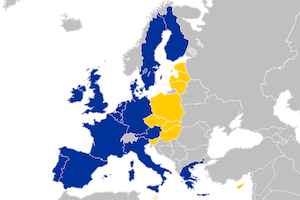
30. April 2024
13:00-14:30 Uhr (s.t.)
GD 102, Gräfin-Dönhoff-Gebäude
20 Jahre EU-Mitgliedschaft – (Zukunfts-)Perspektiven aus Ostmitteleuropa
Podiumsdiskussion in Kooperation mit dem Viadrina Center of Polish and Ukrainian Studies (VCPU):
Timm Beichelt (MES)
Wojciech Gagatek (Warschau)
Anja Hennig (IFES)
Sonja Priebus (IFES)
Falk Flade (VCPU)
Moderation: Susann Worschech (IFES/KIU)
Am 4. Mai 2024 jährt sich die Aufnahme von zehn Ländern in die Europäische Union zum zwanzigsten Mal. Es war die bis dato größte zeitgleiche Erweiterungsrunde der EU. Sie veränderte nicht nur die beigetretenen Länder, sondern auch die Union selbst. Der EU-Beitritt Polens, Ungarns, Tschechiens und der Slowakei, der drei baltischen Staaten sowie Sloweniens, Maltas und Zyperns wurde als europäische Einigung gefeiert und vielfach, insbesondere in Polen, auch als „Rückkehr nach Europa“ gedeutet. Doch das Bild der „Rückkehr“ verdeckt, wie sehr diese Erweiterung mit der erfolgreichen Imitation westlicher Governance- und Gesellschaftsmodelle verbunden ist und dass die sogenannte EU-Osterweiterung Teil eines gesamteuropäischen Transformationsprozesses war, der bis heute zu wenig erkannt und verstanden wird – der aber wichtige Lehren bereithält für zukünftige Erweiterungsrunden – gerade im Hinblick auf die Ukraine.
In dieser Podiumsdiskussion wollen Viadrina Expert*innen den Blick vor allem nach vorn richten und fragen, wie sich institutionelle und gesellschaftliche Zusammenarbeit im geeinten Europa entwickelt haben, wie die Konditionalität der EU sich ausgewirkt hat und heute beurteilt wird, welche historischen Erfahrungen die Länder Mittel- und Osteuropas in die EU eingebracht haben und welche politischen Emotionen mit dem Beitrittsprozess verbunden waren und sind.
Alle Interessierte sind gerne eingeladen (auch mit ihrem Brown Bag Lunch…) vor Ort teilzunehmen.
Die Aufzeichnung der Veranstaltung ist auf dem Viadrina-Medienportal verfügbar.
The Ambivalence of the Liberal-Illiberal Dynamic

In der neuen Ausgabe des Journal of Illiberalism Studies widmet sich Anja Hennig in ihrem Essay "The Ambivalence of the Liberal-Illiberal Dynamic" Fragen der Repräsentation 'illiberaler Akteure' im wissenschaftlichen Diskurs. Vor dem Hintergrund spezifischer Erfahrungen mit den 'Montagsdemonstrationen' in Frankfurt (Oder) erläutert Hennig u.a., welchen Akteuren und Aussagen im akademischen Rahmen eine Bühne geboten werden sollte, wo und welche rote Linien dabei gegebenenfalls zu ziehen sind und wie sich der wissenschaftliche Diskurs im allgemeinen auf 'illiberale' Akteure beziehen kann - Fragen, die zentral für die Selbstverortung von Wissenschaftler*innen sind.
Jahresbericht 2023
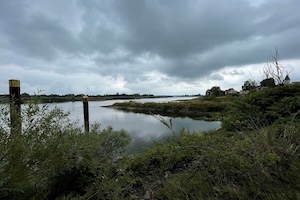
Ukraine und Europa im Wandel, Oderkrise, deutsch-polnische Nachbarschaft und das Land Brandenburg - das waren Themen der Aktivitäten am IFES im vergangenen Jahr. Hier geht es zum Jahresbericht 2023.
Buchvorstellung
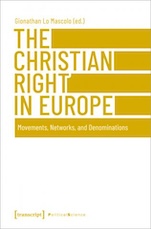
Anja Hennig, Gionathan Lo Mascolo und Marietta van der Tol diskutieren ihre Beiträge im Band "The Christian Right in Europe: Movements, Networks, and Denominations" im Verlag transcript erschienen ist. Die Diskussion im Rahmen des Blavatnik Book Talks ist hier nachzuhören.
Beiträge zur Oder
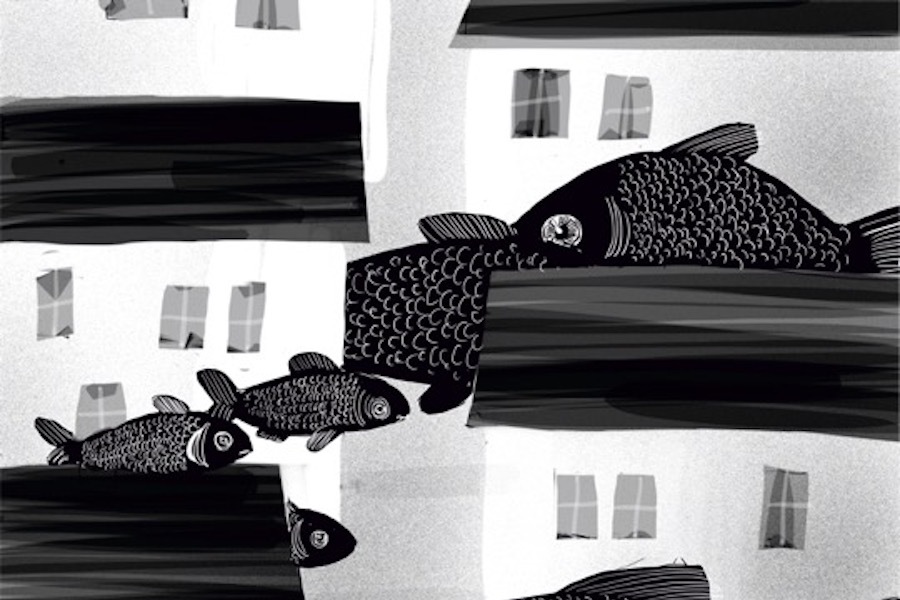
Auf dem Wissenschaftsblog Polenstudien sind im Oktober 2023 unter der Redaktion von IFES-Mitglied Anja Hennig vier Beiträge erschienen, die unterschiedliche Perspektiven auf die deutsch-polnische Oder-Krise, Asymmetrien als Analyseperspektive für internationale Beziehungen und Forderungen nach Rechten der Natur thematisieren. Hier finden Sie die Beiträge zum Nachlesen und Nachhören.
